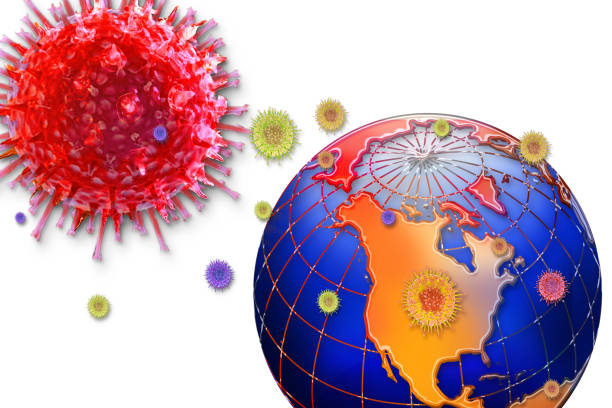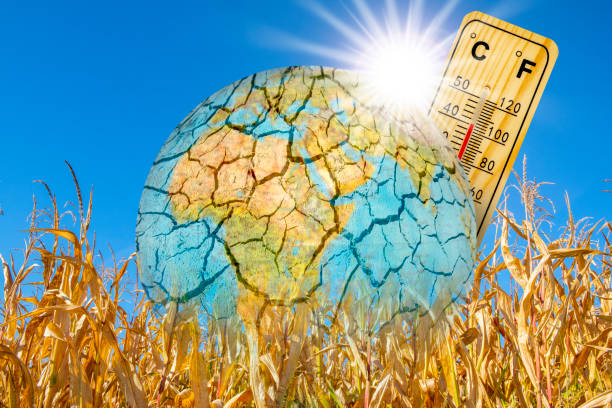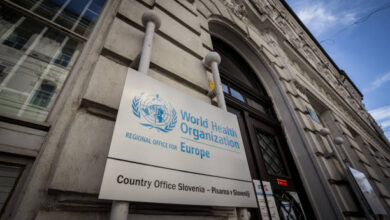
Climate change is no longer just an abstract concept; it is a pressing reality that is already affecting our daily lives. From extreme weather events to rising sea levels, the consequences of our changing climate are becoming increasingly evident. However, one aspect that is often overlooked is the impact of climate change on our health. The rising global temperatures and changes in weather patterns have led to a variety of health issues due to climate change, which are not only affecting us individually but also posing a threat to public health. In this blog post, we will explore the various ways in which climate change is directly and indirectly impacting our well-being and what we can do to protect ourselves.
Unveiling the Connection between Climate Change and Health
Climate change and health are intimately connected, with the effects of a changing climate impacting our well-being in various ways. The link between climate change and health is multifaceted and complex, but understanding this connection is crucial for addressing the growing public health challenges that climate change presents.
One key aspect of the connection between climate change and health lies in the direct impacts of extreme weather events. Heat waves, hurricanes, and floods are becoming more frequent and intense due to climate change, resulting in immediate risks to human health. These events can lead to injuries, displacement, and even death. Additionally, extreme heat can exacerbate existing health conditions and increase the risk of heat-related illnesses, such as heatstroke.
Beyond these direct impacts, climate change also has indirect effects on health. Changes in temperature and precipitation patterns can alter ecosystems and affect the distribution of disease-carrying vectors, such as mosquitoes and ticks. This can lead to an increased transmission of diseases like malaria, dengue fever, and Lyme disease. Additionally, shifts in climate can disrupt food and water supplies, leading to malnutrition and waterborne illnesses.
It is important to recognize that the impacts of climate change on health are not evenly distributed. Vulnerable populations, such as the elderly, children, and those with pre-existing health conditions, are often disproportionately affected. Socioeconomic factors also play a significant role, with disadvantaged communities facing greater health risks due to limited access to healthcare, resources, and adaptive measures.
Understanding the connection between climate change and health is the first step towards effective mitigation and adaptation strategies. By taking action to reduce greenhouse gas emissions, promote sustainable practices, and prioritize health equity, we can mitigate the impacts of climate change and protect the health and well-being of individuals and communities. The health of our planet and the health of our people are interconnected, and addressing climate change is essential for building a healthier and more sustainable future.

Deep Dive into Health Risks Directly Caused by Climate Change
Climate change poses significant direct risks to human health, with various consequences that must be addressed. One of the key direct impacts is the increasing frequency and intensity of extreme weather events. Heatwaves, hurricanes, and floods can lead to injuries, displacement, and even loss of life. In extreme heat conditions, individuals are at a higher risk of heat-related illnesses like heatstroke. The effects of extreme weather events can be devastating, leaving lasting physical and psychological impacts on individuals and communities.
Another direct health risk of climate change is the spread of diseases carried by vectors such as mosquitoes and ticks. Changes in temperature and precipitation patterns can alter ecosystems, creating favorable conditions for the spread of diseases like malaria, dengue fever, and Lyme disease. These diseases can have long-lasting and severe impacts on individuals, often leading to chronic health conditions.
Climate change also affects food and water supplies, leading to malnutrition and waterborne illnesses. Changes in climate can impact agriculture, disrupting crop yields and nutrient content, which can result in food shortages and nutritional deficiencies. Inadequate access to clean water due to droughts or contamination can also increase the risk of waterborne diseases such as cholera and diarrhea.
It is crucial to recognize that vulnerable populations are disproportionately affected by these health risks. The elderly, children, and individuals with pre-existing health conditions are more susceptible to the negative impacts of climate change. Additionally, socioeconomically disadvantaged communities face greater health risks due to limited access to healthcare and resources.
To address these direct health risks, it is essential to implement mitigation strategies such as reducing greenhouse gas emissions and promoting sustainable practices. Additionally, adaptation measures like enhancing healthcare infrastructure and ensuring equitable access to resources and services can help mitigate the health impacts of climate change. By prioritizing health in climate change mitigation and adaptation efforts, we can work towards a healthier and more resilient future for all.

Secondary Health Consequences Due to the Effects of Climate Change
Climate change not only has direct impacts on our health but also leads to various secondary health consequences that must be addressed. These consequences are often the result of indirect effects caused by the changing climate and can have significant implications for individuals and communities.
One secondary health consequence of climate change is the increase in mental health issues. The trauma and stress caused by extreme weather events, such as hurricanes or floods, can lead to anxiety, depression, and post-traumatic stress disorder. Displacement and loss of homes and livelihoods can further exacerbate these mental health issues. It is crucial to prioritize mental health support and resources in communities affected by climate change.
Another consequence is the impact on respiratory health. As temperatures rise, air quality worsens, leading to an increase in respiratory diseases such as asthma and allergies. The presence of allergens, like pollen, is amplified in warmer climates, exacerbating symptoms for individuals with respiratory conditions. The burning of fossil fuels and the release of pollutants contribute to poor air quality, making respiratory health a critical concern.
Climate change also poses risks to reproductive health. Changes in temperature and rainfall patterns can affect crop yields and nutrient content, leading to food shortages and malnutrition. Inadequate nutrition can have severe consequences for maternal and child health, affecting both physical and cognitive development. Additionally, extreme weather events can disrupt healthcare systems and access to reproductive health services, impacting maternal and infant mortality rates.
These secondary health consequences of climate change highlight the need for comprehensive strategies that address not only the direct impacts but also the broader effects on our well-being. By implementing policies that promote sustainable practices, reduce greenhouse gas emissions, and prioritize access to healthcare and support systems, we can mitigate the secondary health consequences of climate change and ensure a healthier future for all.

The Global Impact: A Comparative Analysis on Developed vs Developing Countries
As we delve into the impact of climate change on our health, it is crucial to understand that the consequences are not evenly distributed across the globe. Developed and developing countries face different challenges and have varying levels of vulnerability when it comes to the health impacts of climate change.
Developed countries tend to have more resources and infrastructure in place to mitigate and adapt to the effects of climate change. They have better access to healthcare, technology, and resources to respond to extreme weather events and protect their populations. However, this does not mean that they are completely immune to the health risks posed by climate change.
In developed countries, the primary health concerns related to climate change often revolve around extreme heat events, heat-related illnesses, and air pollution. Urban heat islands and poor air quality in cities can have significant impacts on the health of residents, particularly vulnerable populations such as the elderly and those with pre-existing respiratory conditions.
On the other hand, developing countries face a multitude of challenges when it comes to climate change and health. Limited resources, inadequate infrastructure, and weaker healthcare systems make them more vulnerable to the impacts of climate change. These countries often bear the brunt of extreme weather events, including floods, hurricanes, and droughts, which can lead to displacement, injuries, and an increased risk of waterborne diseases.
In addition to the direct impacts, developing countries also face indirect health consequences due to climate change. Changes in temperature and precipitation patterns can disrupt agricultural systems, leading to food shortages and malnutrition. Limited access to clean water and sanitation infrastructure can increase the risk of waterborne diseases.
It is important to address the disparities in the global impact of climate change on health. International cooperation, financial support, and knowledge-sharing can help bridge the gap between developed and developing countries, ensuring that all communities have the resources and capacity to protect their health in the face of a changing climate.

What Does Science Say: Evidential Studies Linking Climate Change and Health Problems
The scientific evidence linking climate change and health problems is undeniable and continuously growing. Numerous studies have been conducted to understand the specific ways in which our changing climate is affecting our well-being. These studies provide crucial insights into the urgency and severity of the health risks posed by climate change.
One of the most well-documented areas of research is the connection between climate change and heat-related illnesses. Multiple studies have shown that as global temperatures rise, the incidence of heat-related illnesses such as heatstroke and dehydration increases. Extreme heat events can also worsen existing health conditions, including cardiovascular and respiratory diseases. These findings highlight the need for immediate action to address the health risks posed by rising temperatures.
Another area of study is the impact of climate change on the spread of infectious diseases. Research has shown that changes in temperature and precipitation patterns can alter the habitats of disease-carrying vectors, such as mosquitoes and ticks. As a result, diseases like malaria, dengue fever, and Lyme disease are spreading to new areas and increasing in frequency. These findings emphasize the importance of implementing measures to control vector-borne diseases and protect vulnerable populations.
Additionally, research has examined the mental health consequences of climate change. Studies have shown that exposure to extreme weather events and environmental disasters can lead to increased rates of anxiety, depression, and post-traumatic stress disorder. Displacement, loss of homes, and disruption of communities can further exacerbate these mental health issues. These findings highlight the need for comprehensive support systems and resources to address the psychological impacts of climate change.

Adapting to a Changing Environment: Tips for Enhancing Your Health amid Climate Change
As we navigate the challenges posed by climate change, it is essential to prioritize our health and take proactive steps to adapt to a changing environment. Here are some tips for enhancing your health amid climate change:
- Stay informed: Keep yourself updated on local climate change impacts and health risks in your area. Stay tuned to weather forecasts and warnings to prepare yourself for extreme weather events. Knowledge is power when it comes to guarding your health.
- Stay hydrated and cool: As temperatures rise, it is crucial to stay hydrated and avoid overheating. Drink plenty of water throughout the day, especially during heat waves. Seek out air-conditioned spaces and use fans to cool down when necessary.
- Protect yourself from extreme weather: During extreme weather events, take appropriate measures to ensure your safety. Follow evacuation orders if necessary and have emergency supplies on hand. If you have pre-existing health conditions, make sure to have an emergency plan in place.
- Be mindful of air quality: Poor air quality can worsen respiratory conditions and contribute to various health issues. Stay informed about air quality alerts in your area and take necessary precautions. Limit outdoor activities on days with high pollution levels and use air purifiers in your home.
- Practice mosquito and tick control: As disease-carrying vectors expand their range due to climate change, it is essential to protect yourself from mosquito and tick bites. Use insect repellent, wear protective clothing, and avoid areas with high vector activity.
- Eat a healthy and sustainable diet: Climate change can disrupt food supplies, making it crucial to prioritize a healthy and sustainable diet. Choose locally sourced, seasonal foods and reduce your consumption of resource-intensive foods like red meat.
- Support climate change mitigation efforts: By reducing your own carbon footprint and advocating for sustainable practices, you can contribute to mitigating the effects of climate change on health. Encourage policymakers to take action and support initiatives that prioritize health and the environment.
Remember, adapting to a changing environment is a collective effort. By prioritizing our health and taking steps to protect ourselves, we can build a healthier and more resilient future for ourselves and future generations.



